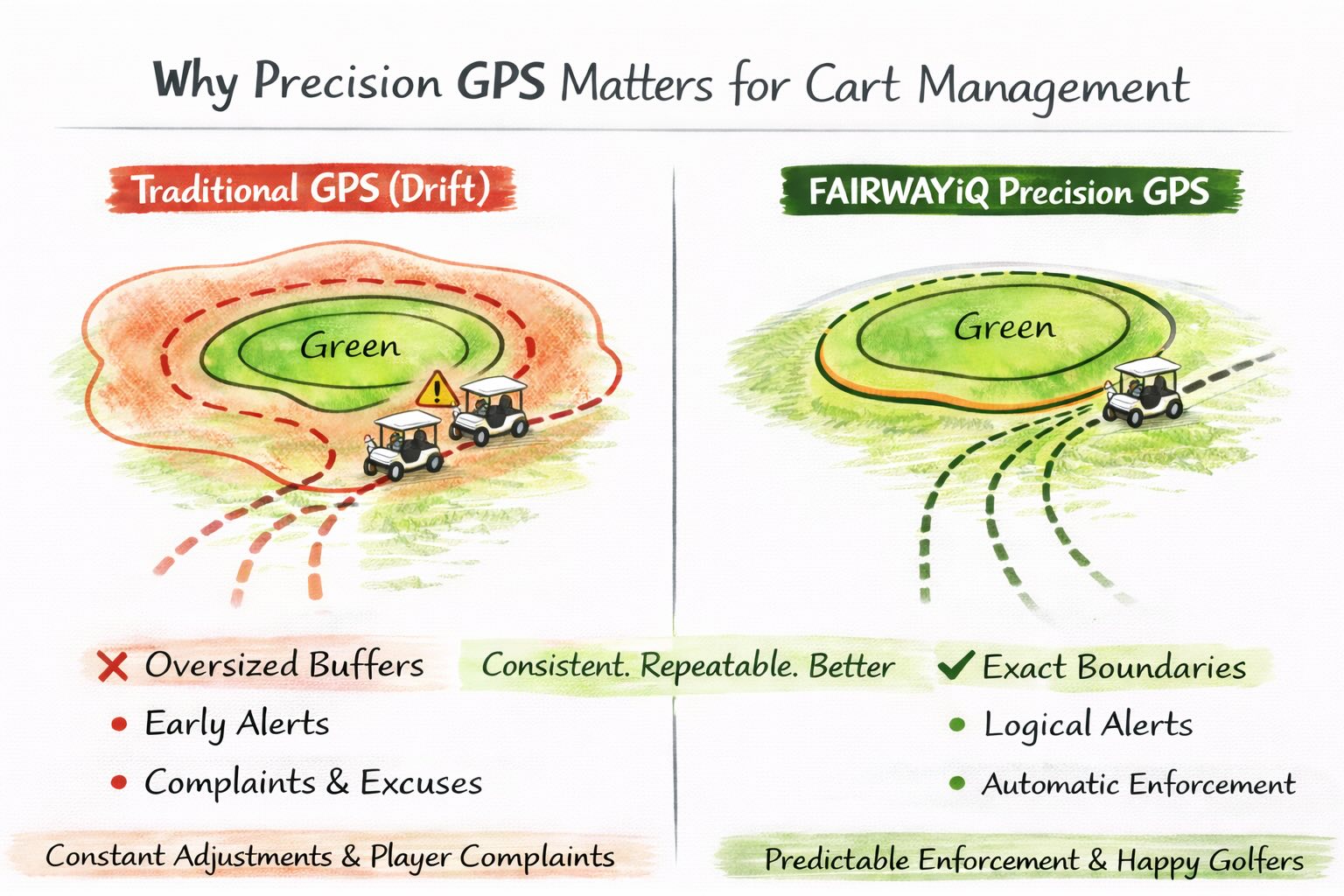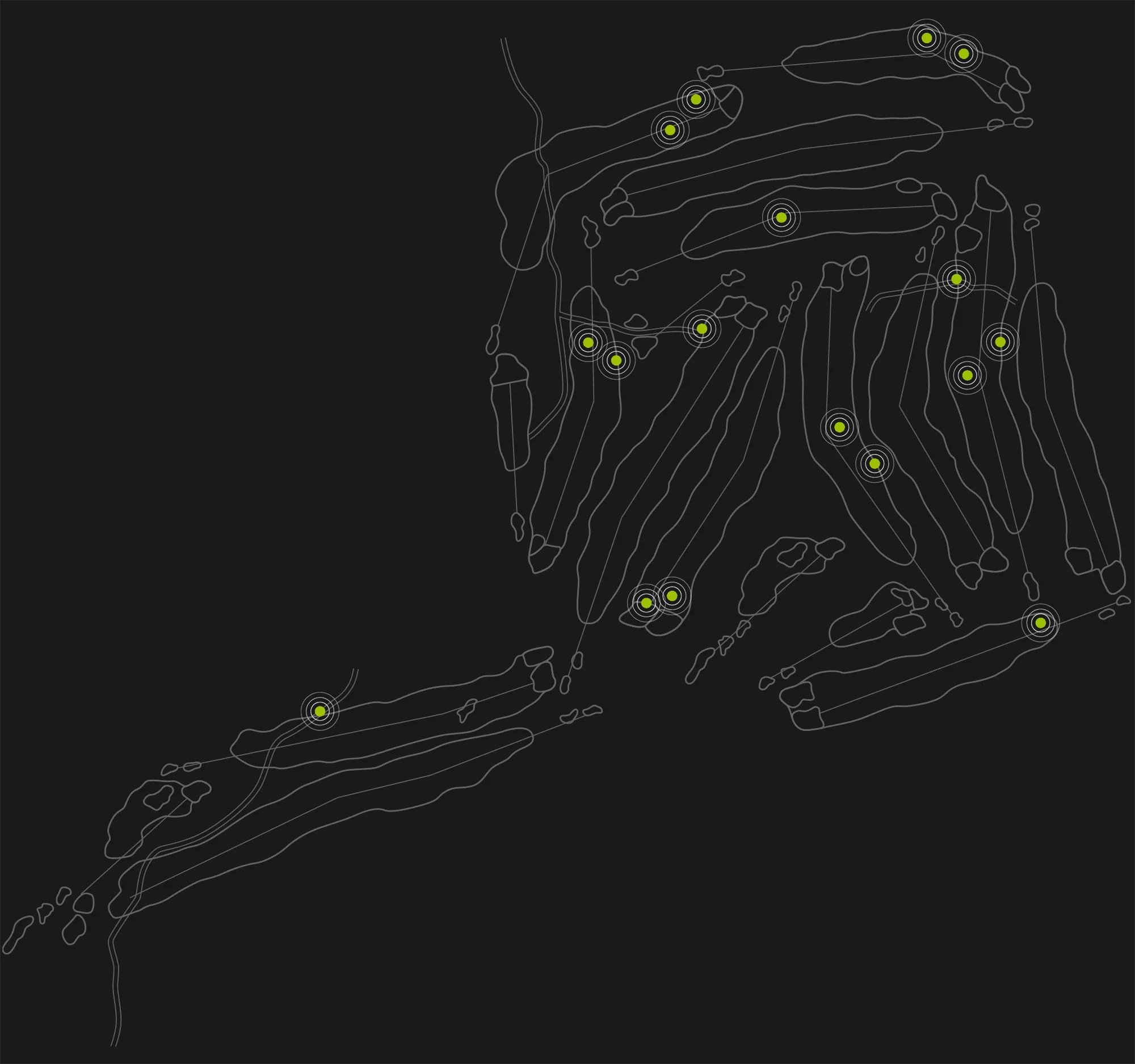Estimated reading time: 4 minutes
Pace of Play Golf Management Advancements
A ranger, or modern-day "player assistant," drives around looking for slow play to manage the pace of play on a golf course. Driving around looking for issues is inefficient, and costly. The interactions between the ranger and players are often contentious and frustrating for everyone involved. Historically, rangers will use "rules of thumb" and subjective information to address golf pace of play issues. Over the past decade, systems like FAIRWAYiQ use data to identify slow groups and address the issue objectively.
Additionally, it's important to note that consistent system and data use clearly improves the flow of play, but doesn't solve the issue entirely. Golf operations teams remain reactive and not proactive.
A Player or Facility Issue?
First, while both player and the facility are the issue, the facility has more control of course flow than the player, proven by our research and data collected over tens of millions of rounds of golf over the last seven years.
Nonetheless, everyone who plays golf can name a few players they know that are slow (btw, it's never them!). It's natural to believe that individuals are the root cause of slow play. Proper management of play by the facility is more critical.
Elapsed Time Pace Measurement is Just a Starting Point
Secondly, systems like Visage, E-Z-Go's TFM, Yamatrack, and Tagmarshal all focus on measuring groups against an expected round time which is useful. Although golf course operators that use systems are ahead of their competition, busy days still remain a challenge. Golf operations teams require actionable data to manage the flow of play. It isn't helpful to see all red dots (indicating slow groups) on a map on busy days. More importantly, it isn't actionable.
Identifying Problematic Groups
Let's start with the definition of problematic groups. Problematic groups are players that are behind pace AND have room ahead of them on the course. This is not easy to identify. Moreover, problematic group data is also particularly actionable. Actively managing the problematic groups has a huge impact on the flow of play. FAIRWAYiQ allows golf course operators to manage problematic groups. The system will notify the staff proactively to identify problematic groups.
Identification Turned into Action
Importantly, once the system identifies the problematic groups, staff members are notified in real-time about which groups are problematic, where they are on the golf course and the severity of the issue. The team takes a well-defined set of actions to alleviate the slow play. A consistent and clear process is critical to the success of any business and golf courses are no exception.
FAIRWAYiQ's Proactive Pace of Play Management Process
We have defined a process that has proven to improve and maintain the flow of play in 5 Easy Steps:
- 1. The System Identifies Problematic Groups: First, staff members on duty receive system notifications.
- 2. A Staff Member Addresses the Issue: Second, any staff member takes the issue and addresses it with the group on the golf course.
- 3. The "On Demand" Ranger Logs an Intervention: Third, the responsible staff member will log the conversation and the action taken with the problematic group. Furthermore, the player record, including the intervention history, is available for all staff so everyone is aware of each staff interaction.
- 4. The System Measures Staff Response Time: Fourth, issues will not compound with fast response times. Head Golf Professionals now have the data to measure staff member responsiveness.
- 5. The System Measures Player Response Time: Finally, the system measures the time until the problematic group is back in position. This data ensures your team takes actions that have the greatest impact.
Results
Historically, FAIRWAYiQ has worked with many golf course operators that have eliminated their full-time rangers and relied instead on repurposing staff to address the issues as they surface from our system. Facilities that have eliminated full-time rangers have reduced costs by an average of $14,000 annually.
Additionally, golf operations teams that follow the process and workflow in the FAIRWAYiQ system see an average improvement of 20 minutes in round times. This translates into more revenue at public facilities and more satisfied members at private clubs.
Interested in Learning More?
Schedule a demo by clicking on this link.
Related Articles:
Related Posts

Precision GPS for Golf Carts: Lessons from Agriculture

Golf Cart Geofencing

Precision GPS for Golf Carts
Revolutionize Your Golf Operations with FAIRWAYiQ
Unlock the power of data analytics to optimize your golf course management

